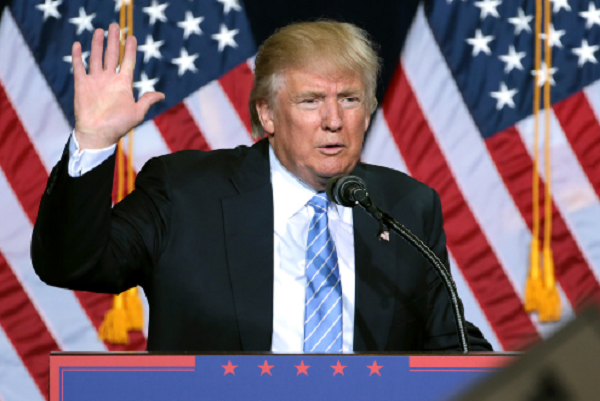In a recent development, the Michigan Supreme Court has rejected a request to remove former President Donald Trump from the ballot in the upcoming 2024 elections. This decision is in direct opposition to the ruling made by the Colorado Supreme Court, which removed Trump from the state’s primary ballot due to his alleged involvement in the Capitol riot on January 6th. As these rulings contradict each other, the appeals to the US Supreme Court become even more significant, especially with the approaching 2024 primaries.
Unlike the case in Colorado, the lawsuit in Michigan was dismissed at an early stage and did not proceed to trial. The dismissal was affirmed by a higher court that handles appeals from lower courts. The judge who initially presided over the case in Michigan’s Court of Claims stated that state law does not provide a provision for election officials to verify the eligibility of presidential candidates.
Furthermore, he argued that the courts should not interfere in political matters. Notably, the Michigan Supreme Court did not disclose the vote count, and the order was unsigned. Unlike their counterparts in Colorado, the Michigan courts dismissed the case solely based on procedural issues, avoiding the question of Trump’s involvement in the January 6th insurrection. In an article published on Wednesday, one of the justices from Michigan elaborated on the differences between their state’s approach and that of Colorado.
“The anti-Trump challengers have identified no analogous provision in the Michigan Election Law that requires someone seeking the office of President of the United States to attest to their legal qualification to hold the office,” Justice Elizabeth Welch wrote, drawing a comparison between Michigan law and Colorado’s election code.
Following the ratification of the 14th Amendment after the Civil War, individuals who were involved in insurrection were prohibited from holding public office if they pledged allegiance to the Constitution. This provision resulted in the disqualification of numerous former Confederates. Interestingly, the language of the amendment does not specifically mention the presidency, and since 1919, there have only been two instances where this provision has been applied.
Recently, the advocacy group Free Speech For People filed a lawsuit against the state of Michigan on behalf of certain voters. They have also initiated a case in Oregon and attempted to challenge Trump’s eligibility for the presidency in Minnesota, although their efforts were unsuccessful.
Another liberal-leaning group filed a lawsuit in Colorado. The decision rendered by the Colorado Supreme Court, which consists entirely of justices nominated by Democrats, has been both controversial and groundbreaking. Last week, the state’s highest court voted 4-3 to disqualify Trump from participating in the state’s Republican primary election in 2024.
This decision has sparked significant controversy as it is based on Section 3 of the 14th Amendment, which prohibits individuals who have engaged in insurrection from running for federal office. Many argue that the decision was politically motivated and sets a dangerous precedent in American politics.
Ty Cobb, a former assistant U.S. attorney for the District of Maryland, has predicted that the U.S. Supreme Court will unanimously overturn the Colorado Supreme Court’s decision to disqualify former President Donald Trump from the state’s ballot in 2024. During an interview on CNN, Cobb, who defended the Trump administration during Special Counsel Robert Mueller’s investigation into alleged Trump-Russia collusion, expressed his belief that while Trump’s actions in challenging the 2020 election have been detrimental to the Republican Party, the U.S. Supreme Court will ultimately reverse the decision in Colorado.
“I think this case will be handled quickly,” the longtime attorney said. “I think it could be 9-0 in the Supreme Court for Trump.
“So, I — the way I see this is — is that the Supreme Court has to take this. They can stay the dates in Colorado. They’ll move expeditiously. I was struck by the majority opinion and the amount of verbiage devoted to the sort of strawman arguments. You know, the real key issue in this case is, is Trump an officer of the United States in the context in which that term is used in Article 3 of the 14th Amendment,” Cobb said.
He added: “And in 2010, Chief Justice Roberts explained in Free Enterprise that people don’t vote for officers of the United States. Article 2, ‘officers of the United States’ is commonly understood in the Constitution to refer to appointed officials. And to the extent that the president or the vice president are included as an officer or included within the admonitions of the Constitution, they are typically highlighted, like in the impeachment clause which specifically says president, vice president. So I think this case will be handled quickly. I think it could be 9-0 in the Supreme Court for Trump.”




